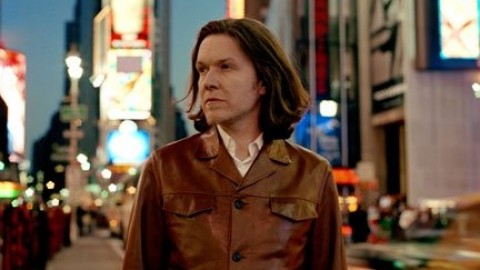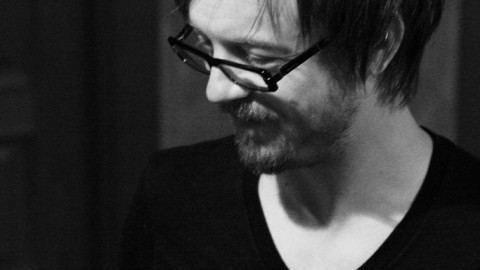Exclusive davidsylvian.net interview by Gerrit Hillebrand (March 2002)
On March 25th, 2002, the long awaited Bill Nelson 6 CD box set Noise Candy is released by Lenin Imports. The box, containing over 120 songs, most of which have been previously unreleased, should be enough to feed the hunger of the many Bill Nelson fans for a while. Packed in a box with very beautiful artwork by Mike Innes (who worked on the What Now, What Next & Atom Shop projects), these 6 albums can not be missed in any collection.
Amongst David Sylvian fans, Bill’s contributions on the Gone To Earth and the Rain Tree Crow albums are highly praised.
The release of Noise Candy was a great opportunity for Trophies to ask Bill a few questions and resulted in this Trophies.org exclusive interview!
GH: What can we expect to find in the Noise Candy box? Is it old, new or old-but-new material?
BN: Noise Candy is a collection of previously unreleased material, six double albums worth in fact. It’s old material in that it was mostly recorded over a ten year period from 1990 to 2000. The music was put to one side, either because it didn’t fit in with my other albums at the time, or because I felt I needed to let it rest for a while.
GH: Is the material on Noise Candy, representative for your work?
BN: There is a tremendous variety of material in Noise Candy. It covers just about every style of music I’ve ever played, so , somewhere amongst it must be something that’s representative of my current musical tastes. However, the form that my music takes is very much in a constant state of flux. It all sounds like Bill Nelson but at the same time, its outer shape shifts with the creative breezes. I attempted to bring some unity to the material on Noise Candy by sorting it into loose categories, one for each album.
There is a ‘jazzy-bluesy’ album, a ‘mutant country’ one, a ‘psychedelic guitar’ one, a ‘hyper-pop’ one, a ‘contemporary instrumental’ one, and so on.
GH: I’ve been told that the process of making Noise Candy was a difficult one.
Can you tell us something about that?
BN: It was difficult in that there was such a huge amount of material in my archives to sort through. It took many months of experimenting with different song choices and running orders before I came up with the combination you’ll hear on the finished set. For all I know, there may be a dozen better combinations than the one I ended up with. But you have to stop somewhere. It is, in the end, what it is and I had to let go of it. Sooner or later, it has to ‘walk out the door and get a job’ and I have to focus on new things. All in all, including a long time spent on the cover design, Noise Candy took up two years of my life. For me, that’s way too long. It’s only pop music, not the Sistine Chapel ceiling ! I prefer to work quickly and spontaneously. I’m more interested in the art of music than the crafting of it. (This doesn’t mean I condone sloppy work, I have been accused of perfectionism in the past…it’s just that I try to not get too anally retentive about it these days !)
‘Art’ happens in a flash, whereas ‘craft’ often involves a tedious amount of labour and wasted expense. I’ve been making records for so long now, the actual process has become far less interesting and absorbing than it was. The real challenge is in being 100% true to myself, and to not apply false criteria to the work. I just want to get to the center of things, reflect what I find and move on. Less nuts and bolts, more heart and soul.
GH: Trophies is a David Sylvian dedicated site and amongst it’s visitors you are well known for your contribution to David’s work on Gone To Earth and the Rain Tree Crow project.
Can you tell us something about the process of working with David? Was it difficult?
BN: Working with David wasn’t hard in itself. The hardest part for me, in any collaboration or session with someone else, is getting past my own inherent shyness and lack of confidence. I suffer tremendous agonies before embarking on these things, for all kinds of reasons. I have no formal musical training and rely on a kind of intuition in these circumstances. Some people may interpret this as some kind of spiritual thing, a nebulous gift or whatever. What it boils down to is reaching a state of mind where the ego is too enraptured by the creative moment to raise doubts about what is going on. The best way to describe it, for me, is in Zen terms. It’s a state of ‘no-mind’ or ‘beginner’s mind’. If you are 100% in the moment, the moment will take care of itself. Achieving this state isn’t as hard as it might seem…learning to trust it is far more difficult. ‘First thought, best thought’ as Jack Kerouac said.
GH: You share the same manager with David. Are you still in contact with David or are you ‘keeping-up’ with each other through your management Opium (Arts)?
BN: I haven’t been directly in touch with David for several years now, not since he moved to America, I guess. We are both aware of each other’s state of play via Richard Chadwick, however. It would be nice to see each other sometime though. I’m sure we’ll get together one of these days. I’ll always be grateful to David for hooking me up to Richard. He’s become one of the cornerstones of my life.
GH: The recording sessions of Rain Tree Crow were supposed to be very relaxed and gave the musicians big freedom. How do you look back at that time? Were you happy with the results?
BN: Yes, I’d say that the sessions for Rain Tree Crow were reasonably relaxed. I think that the music on that particular album has been somewhat underated. I also think that the project had further life in it but it wasn’t given the opportunity to move forward to another album.
Apart from the music, my outstanding memory of those sessions was meeting Pete Townshend, ( who’s studio we were in,) an artist who inspired me during my teenage years. I passed some copies of my albums to him and later recieved a lovely letter, saying that he had written off to join my fan club …I was extremely flattered !
GH: There are rumours of lengthy demo tapes lying around with Rain Tree Crow sessions that probably will never see the light of day. Have you contributed to any of these sessions?
BN: I don’t really know if there were any unreleased tracks. I think that all the pieces I played on were released as part of the album, but I could be wrong.
GH: David has been touring last year (did you go to a concert?) and will start soon the US leg of the E&N tour. I read in your diaries that you would like to tour or doing some live gigs as well. Are there any concrete plans yet?
BN: Unfortunately, I didn’t get the chance to see David’s recent concerts. I don’t get out much these days ! And yes, I’d like to tour with a band of my own but to do it to a standard that would make me really happy would require a serious budget (to hire good musicians and to present the music with proper production values.) It’s an expensive proposition. I do sometimes give solo concerts of my guitar / tape improvisations, ‘though even these are quite rare. The last concert I gave was a couple of years ago at The Queen Elizabeth Hall on London’s South Bank. I’ve recently been invited to play at a tribute concert for the late Stewart Adamson (Big Country), planned for the end of May this year in Glasgow. I intend to create a solo guitar and tape tribute piece for the event. I was regarded as a sort of ‘mentor’ to Stuart in his earlier career and was deeply saddened to hear of his passing.
GH: You seem to be pretty busy with video equipment in combination with computers nowadays. Can you tell us something about your current work and possible releases?
BN: Yes, during the year 2000, I worked on a series of desktop video pieces, using some of my instrumental recordings as the soundtrack. I’ve recently given them a ‘surround-sound’ treatment and they are due to be released commercially as a D.V.D. collection via Discipline Global Mobile, Robert Fripp’s label. It’s an area I’d like to explore more and I have several ideas for future projects of this kind.
It’s difficult to describe the exact nature of my video work. Like the music, it’s highly personal and ongoing. I’ve been told that they reveal the mystical in the mundane, but I’d prefer the viewer to come to his own conclusions. My own interpretations are too obscure and obtuse to be of help. The forthcoming D.V.D. release is titled ‘Flashlight Dreams And Fleeting Shadows‘, so that might give you a clue. Sometimes I like to think of them as alchemic puzzles. They’re also wallpaper for drunks.
GH: What is the ultimate goal of your music ?
BN: It’s virtually impossible for me to say what the ultimate goal of my music is. In many ways, it has no goal. It exists independently of any pre-concieved plan. It’s a living thing with a mind of it’s own and I try not to direct it too much. It’s music without makeup. You could say that it’s both music as I actually am and music as I wish I was. Isn’t duality a tease ?
2002 www.davidsylvian.net by Gerrit Hillebrand (March 2002)
Special thanks to Bill Nelson and Paul Page.
For the interview, use is made of original Noise Candy artwork by Mike Innes.
More information on Bill Nelson can be found on the Permanent Flame site.

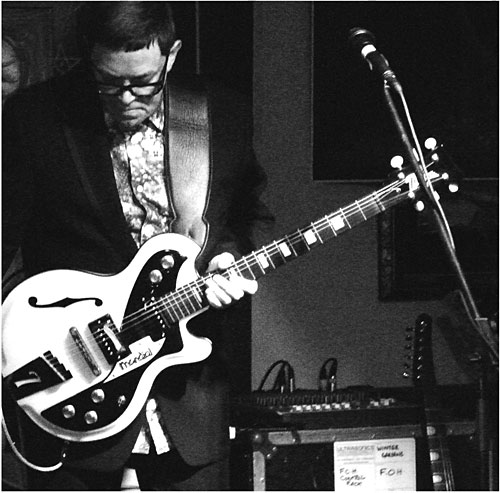
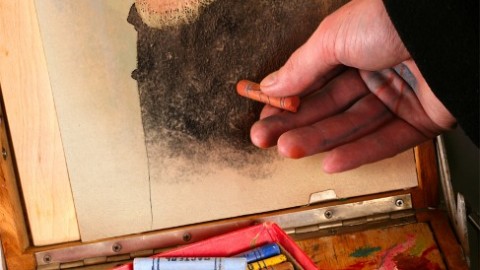
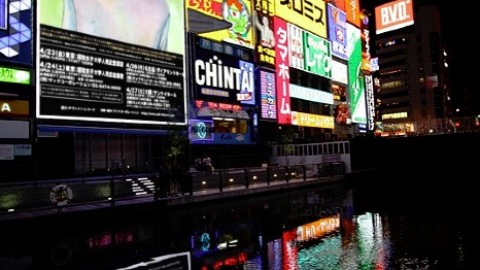

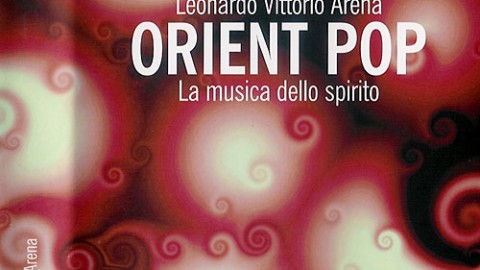
![Russell Mills – Contingency [Ordering Chaos]](https://www.davidsylvian.net/wp-content/uploads/2019/01/IMG_5810-480x270.jpeg)
